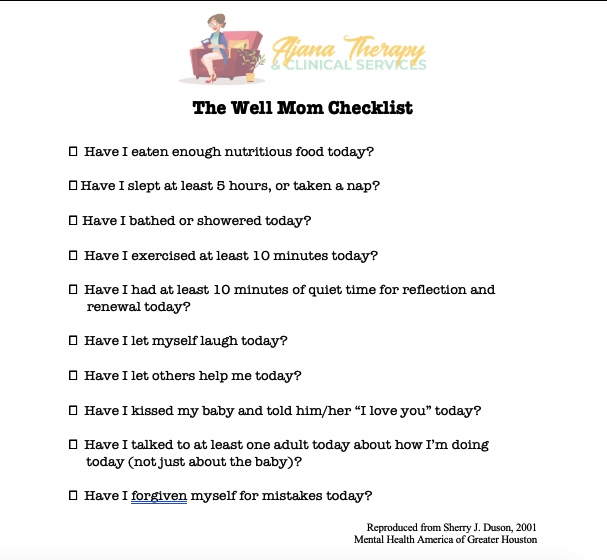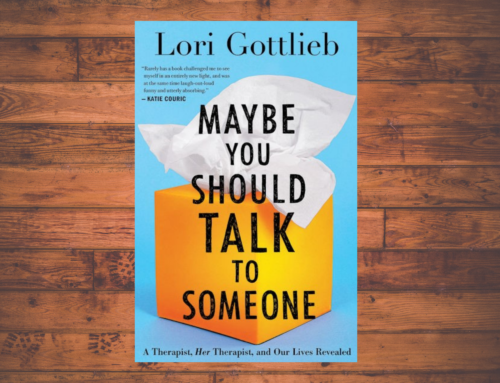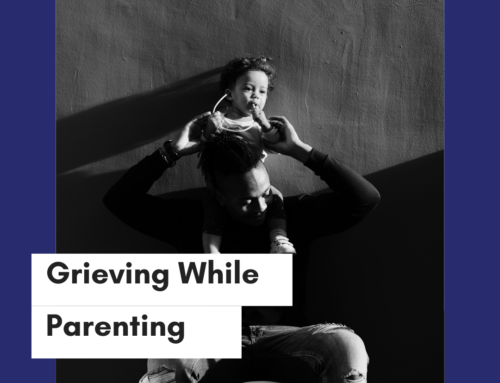Moms, It’s Okay to Ask for Help–The Importance of Maternal Mental Health
Written By: Jessica Eiseman, MS, LPC-S, NCC, CCTP
As Seen on Mental Health Match
A news story recently was plastered everywhere about a murder-suicide with a mother and her two small children, 4 and 1 years old. I will spare you the details, but have included a link to the story if you want a good cry. Trigger warning. It made me sob. Moms, we aren’t okay. Our maternal mental health needs to be addressed. When a baby is born, that is the focus. Never once after having my child, was I screened for postpartum symptoms. No one asked me before I took my precious child home, “Are you okay?” “Are you having any thoughts of hurting this baby?” Moms you need to hear this: you are a super woman, but you are not super human! Postpartum depression and postpartum anxiety are very real. Having them does not make you weak nor does it make you a bad mother.
Myths in Motherhood
Some of what perpetuates these disorders are the outdated expectations and continued pressures society puts on us and we continue to put on ourselves. If we don’t meet these said expectations we then shame ourselves and carry immense feelings of guilt.
Some of these irrational beliefs include:
- Having immediate love and bonding to your baby.
- Your birthing plan going exactly the way you wanted it.
- Having a never-ending supply of breast milk that your baby will immediately take from you.
- Feeling happy about having your little bundle at all times, despite the lack of sleep.
- Knowing what the hell you are doing at all times.
- Your partner is going to be so supportive and helpful.
- After the 6-weeks, you will want to have sex again like bunnies.
- Your body will snap right back and you will fit into your old jeans in no time.
- Wanting to pop out another kid.
- You’ll want to be a stay at home mom after the baby.
Any of these sound familiar? The CDC as of 2017 reports that 1 in 9 women will experience postpartum symptoms and this is based on reports. Still there are a lot of women who never report it. This number can be higher depending on your geographic area. In Texas (because that’s where I’m at) we actually have about 1 out of 8 women (if I did the math right. I’m a therapist so I don’t have to do math). We all know at least 8 moms. Look around. Check in on your friends. Talk to each other about what is going on. Most likely someone else has experienced some of these symptoms too.
The Well Mom Checklist
 After bringing baby home one of my veteran mom friends gave me this checklist. Amongst all the craziness the first few months after baby is born can be, this helped remind me to do some self-care. I think this checklist is an amazing reminder each day no matter how old our children are to take care of ourselves.
After bringing baby home one of my veteran mom friends gave me this checklist. Amongst all the craziness the first few months after baby is born can be, this helped remind me to do some self-care. I think this checklist is an amazing reminder each day no matter how old our children are to take care of ourselves.
If you notice that you aren’t able to do these things, or you try and you still feel terrible, that may be a good time to see a professional that specializes in maternal mental health. They can help you to lessen your anxiety and fears, reduce your depressive symptoms, and help you to adjust to this new version of yourself.

